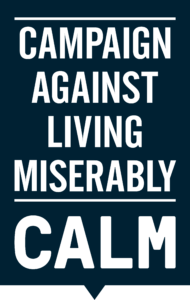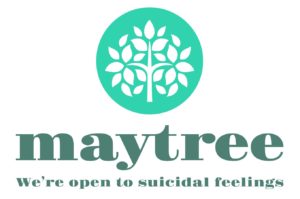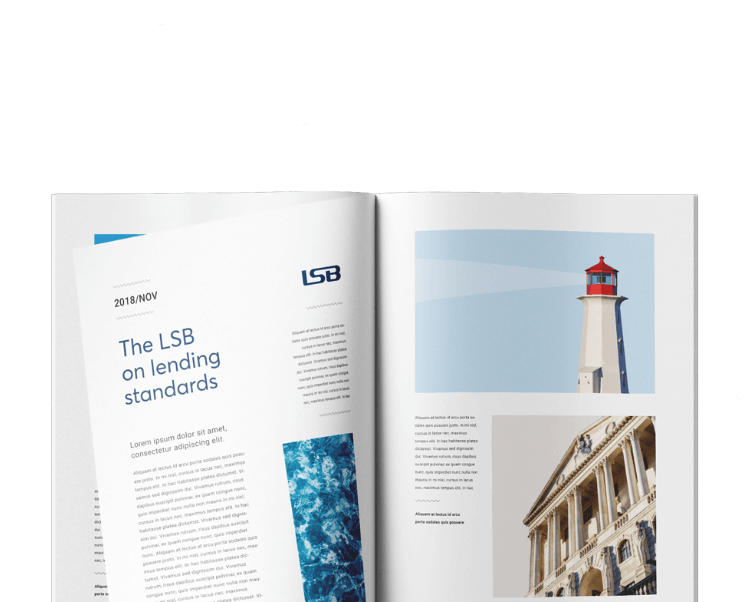Mental health awareness is everyone’s responsibility, and with the pandemic putting huge pressure on many businesses and individuals, it is vital that we all play our part in raising awareness and supporting those who are struggling.
The Lending Standards Board (LSB) is an independent oversight body with a mission to drive fair customer outcomes within financial services. We do this by providing independent oversight of the Standards and Codes for which we are responsible. Firms that register and adhere to our Standards and Codes show a commitment to delivering the highest standards in the treatment of their customers.
The identification and treatment of vulnerable customers, including those struggling with their mental health, has always been an area of focus and priority across our work. The Standards of Lending Practice for both personal and business customers include vulnerability Standards that outline the importance of the identification and fair treatment of vulnerable customers. They ensure that vulnerability is considered at each point in the customer journey and is not limited to pockets of activity such as collections. The Standards also highlight the importance of staff training, signposting, and the need for firms to be flexible in their approach depending on the customer’s circumstances.
This year for World Mental Health Day, we teamed up with four charities to recognise and better understand mental health conditions and how they may affect a customer’s ability to manage their finances.
How might mental health difficulties affect financial wellbeing?
According to mental health charity MIND, poor mental health can make managing money more difficult, and worrying about money can negatively impact someone’s mental health, thus causing a vicious cycle.[1]
Speaking to the LSB, Sadia Ahmad, Outreach Officer at suicide respite centre Maytree, said on the topic: ‘There’s no doubt that financial worries and crisis impact on a person’s mental health. Along with fears of being judged or shamed for finding oneself in a difficult situation, there can be pressure for those who are breadwinners in their household, and this disproportionately impacts on mens’ mental health, for whom there are higher suicide rates than women.’
Sadia continued, ‘If you’re already struggling with your state of mind, your finances might just feel like one extra pressure, or something beyond your capacity to cope. You might find small things slipping, and then it becomes harder to keep on top of day-to-day responsibilities, and slowly the situation becomes unmanageable. Or conversely, a person may find themselves spending more than usual as a form of comfort. Often when a situation becomes unmanageable in our lives, it is a sign of how we’re feeling inside.’
We also spoke to GambleAware about the effect of gambling addiction on financial wellbeing. They commented: ‘Gambling is a serious public health issue in Britain, with official statistics estimating that over two million people may be experiencing some level of gambling harm, including around 340,000 ‘problem gamblers’. Research commissioned by GambleAware suggests these estimates may be low.
Someone experiencing gambling harms, whether due to their own gambling problem or that of someone close to them, can often spend more than they can afford on gambling, or on paying off debts incurred due to gambling, and then struggle to find the money to pay bills and meet other commitments. Some people might take out loans to cover gambling debts, and this can lead to a spiralling financial crisis, often resulting in serious consequences such as firms seeking repayments through the courts, or repossession action on the gambler’s home. A financial crisis often leads a person, or their partners, friends and family, to seek help.’
Data published by the Money and Mental Health Policy Institute demonstrates that certain mental health conditions have a higher association with financial difficulty. For example, its figures showed that people with OCD are almost six times more likely to be in problem debt than people without a mental health problem.[2]
Christian Bower, Helpline Manager at OCD Action, said: ‘OCD consists of two main components – obsessions and compulsions. Obsessions are unwanted, distressing intrusive thoughts, urges, images or feelings which cause anxiety, often in the extreme from, and the compulsions are the mental or physical rituals or behaviours carried out in order to alleviate that anxiety.
Compulsions can present in any form. Common compulsions may include things like reassurance seeking, avoidance, counting and checking. It is not uncommon for us at OCD Action to hear of people spending large amounts of money as part of their compulsions. As an example, someone who fears getting ill from travelling on public transport may spend excessive amounts of money on private taxis, cleaning products and water bills. As another example, someone struggling with intrusive thoughts about harm coming to their family may feel the need to throw out items that they feel are unsafe, and then replace them at a later date, such as kitchenware or other electrical appliances.
We also speak to many people unable to work because of the impact that their OCD has on them – this can understandably contribute to them experiencing difficulties with money.’
What can financial service providers do to support customers experiencing poor mental health?
GambleAware says that steps have been taken to help prevent and respond to issues with gambling, such as the ban on gambling with credit cards introduced by the Gambling Commission in April 2020. GambleAware also noted that some financial service providers give customers the option to turn on a gambling block, which, when activated, prevents them from being able to pay for gambling using their debit card.
Despite these steps, they express that more can be done: ‘Financial firms can do more to identify people who may be experiencing gambling harms. Often, unusual patterns of activity can be identified amongst the transactions carried out by someone experiencing gambling harms, including repeat deposits and declined transactions. Banks and credit providers need to ensure their systems support the identification of people who may be experiencing gambling difficulties, and ensure their staff are trained in working with vulnerable customers so that these customers are supported to seek advice, and offered timely help and signposting to support and treatment.’
Identifying patterns in customers’ financial behaviour is supported by Maytree: ‘It may start off with small things, like missed or late payments, changes in spending, or over-borrowing,’ Sadia at Maytree told the LSB.
‘If a customer has been identified to be struggling, it’s important to approach them with kindness, and without judgement, or shame. They may like to refer them to an appropriate service that can help them explore the roots of their thoughts, feelings, or behaviours around their finances.’
Christian at OCD Action agreed that reducing shame around mental health struggles is a key factor for firms’ communication with customers: ‘We would never expect banks to be experts in all mental health conditions but having some understanding could go a really long way.
The main thing is to listen to people. Acknowledge that OCD, or whatever it is that they may be struggling with, is real and nothing to be ashamed about. Living with OCD can feel incredibly isolating at times, so having someone listen and not judge could be a huge relief for someone with the condition.
Signpost to charities or mental health support (via a GP) if you are able to. From there, we can provide ongoing support to that person and those around them.’
The charity Campaign Against Living Miserably (CALM) supported these views and reiterated the importance of actively listening to customers to understand their situation and show a genuine interest in the person, avoiding unintentionally dismissing their feelings.
By signing up to the LSB’s Standards and Codes, registered firms have demonstrated their commitment to go beyond statutory regulation for their customers. We are committed to working with firms to ensure the Standards and Codes are embedded across the customer journey, and we will continue to provide insights and share best practice that support the delivery of good outcomes.
About the charities
CALM
The Campaign Against Living Miserably (CALM) is leading a movement against suicide — offering life-saving services, provoking national conversation and bringing people together to empower everyone to reject living miserably and stand together against suicide.
According to CALM, on average 125 people in the UK take their own lives every week, with 75% of all suicides in the UK being male. CALM’s free and anonymous helpline and webchat service is open from 5pm to midnight, 365 days a year, where their trained professional staff are on hand to talk to anyone who might be struggling.
They also bring people together with collective action around interest points like running, football and art to drive cultural change and empower communities to better support the mental health and wellbeing of themselves and those around them.
GambleAware
Gambling harms are best understood as matters of health and wellbeing, and keeping people safe from gambling harms requires a public health response, including:
•Primary prevention – universal promotion of a safer environment
•Secondary prevention – selective intervention for those who may be ‘at risk’
• Tertiary prevention – direct support for those with gambling disorder or for those who may be directly affected.
Guided by this public health model, GambleAware commissions prevention and treatment services in England, Scotland and Wales which is underpinned by research and evaluation. GambleAware works to ensure evidence-informed services are developed according to need within a robust and accountable system, and that funding is allocated efficiently and independently. The majority of their funding goes to delivering the National Gambling Treatment Service. They also produce resources and fund training programmes for people likely to work with those at risk of experiencing gambling harm.
Maytree
Maytree supports adults struggling with suicidal ideation through compassionate, non-judgemental befriending, with trained volunteers and staff. They take the time to explore the roots of suicidal thoughts and feelings at their respite centre where guests can stay for five days. During the pandemic, they are offering ongoing calls to people, similar to a stay at the centre while they make plans to reopen safely for residential stays.
OCD Action
OCD Action provide support and information to anyone affected by Obsessive Compulsive Disorder (OCD) and related conditions, including friends, family and carers. They do this through frontline support services, including an email and phone helpline, a network of online support groups and independent local groups, a youth service and online peer-support forums. OCD Action work hard to raise awareness of OCD and campaign for better access to quality treatment for those with living with OCD.
Further information
If you or someone you know is struggling with any of the issues mentioned in this article, please make use of the following support services:

0800 58 58 58 – helpline and webchat are open from 5pm until midnight, 365 days a year. Call CALM or chat to trained helpline staff online. No matter who you are or what you’re going through, it’s free, anonymous and confidential.
![]()
0808 8020 133 – through the National Gambling Helpline or via begambleaware.org people can find out more about gambling harms, tips for staying safe and where to go should they need further help and support. For people experiencing distress the National Gambling Treatment Service offers a range of treatment interventions.

Maytree is continuing to offer email and telephone support as it works to safely reopen for residential stays, in line with government guidance. If you’re struggling with suicidal thoughts or feelings, or know someone who is, please call 0207 263 7070 from 8am-8pm daily, or email maytree@maytree.org.uk

0845 390 6232 or email support@ocdaction.org.uk – helpline is open weekdays 9.30-8pm dependant on volunteer availability. Alternatively, you can visit www.ocdaction.org.uk/support-groups for online and local peer-support groups.
[1] MIND, Money and Mental Health
[2] Money and Mental Health Policy Institute, Money and mental health: the facts





